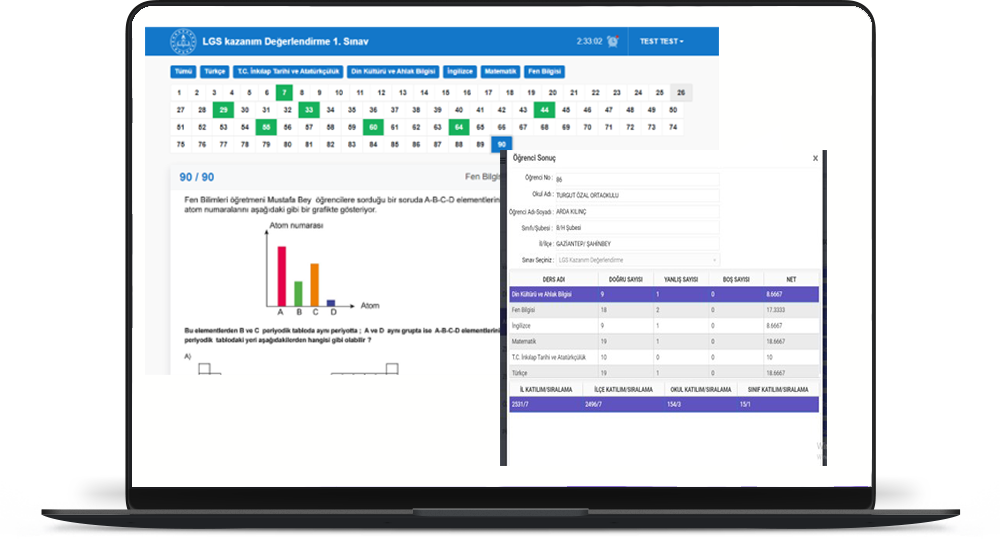
1. Exam Management:
- Exams are created and configured in a digital environment.
- Types of exams, question formats (multiple choice, open-ended, etc.) and exam times are determined.
2. Question Bank:
- Questions can be created on different topics and levels with the extensible question bank.
- Questions are divided into categories and easily managed.
3. Examination Evaluation:
- Automatic scoring and correct/incorrect analysis are performed.
- Teacher evaluation tools are provided for open-ended questions.
- Exam results are notified to the user instantly.
4. Performance Tracking:
- Student performance, exam results and progress reports are monitored regularly.
- Performance data are presented graphically and tabularly.
5. Security and Verification:
- Biometric and OTP (Disposable Password) systems are used for authentication and exam security.
- Security measures to protect the integrity of the exam (webcam monitoring, IP tracking, etc.) is applied.
6. Reporting and Analysis:
- Detailed reports provide information about exam results, student achievements and exam data.
- Reports can be customized and exported (PDF, Excel, etc.).
7. User Management:
- Different access and authorization levels are defined for students, teachers and administrators.
- User profiles are created and managed.
8. Interactive Tools:
- Interactive tools (note taking, timer, feedback form) are presented during the exam.
- Student feedback is collected and analyzed after the exam.
9. Integration and Support:
- Provides integration with other education management systems (LMS) and databases.
- Technical support and user training services are provided.
10. Mobile Compatibility:
- The system is compatible with mobile devices and allows the exams to be accessed from tablets and smartphones.
- Mobile application support and responsive design are offered.

We have developed an e-Exam System where detailed evaluation, measurement and follow-up are carried out for the exam-taking institutions